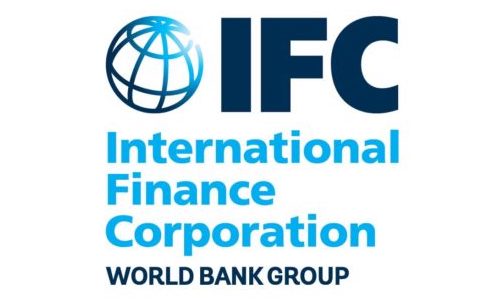Disclosures For IFC’s Impact Principles Reveal Obvious Next Step For Accountability

The ever-growing field of impact investing seeks to transform traditional investing by focusing on positive impacts — such as increasing the use of renewable energy — and not just financial returns. As the field has evolved, a key question has emerged: how do we best measure and manage both positive and negative impacts? Seeking to advise on this issue, the International Finance Corporation (IFC) launched the Operating Principles for Impact Management (“Impact Principles”) in April 2019. The Impact Principles have the potential to exert enormous influence over impact investing as it currently has 106 signatories that manage a total of US$ 340,830.15 million in assets. Not only do the Impact Principles provide investors with a framework to ensure that impact considerations are integrated throughout the investment lifecycle, but they go a step further and require signatories to disclose how they align with them. With 74 disclosures made available as of the date of this post, now is an opportune time to reassess the value of the Impact Principles. Our review of the disclosures shows that a governance gap we identified during the drafting of the Impact Principles has proven true in practice: signatories do not interpret the Impact Principles as requiring the adoption of accountability mechanisms.
What Accountability Tools Do the Impact Principles Require?
The framework consists of nine principles that require investors to undertake various activities to define and manage their strategic impact, assess the expected impact and the potential risks of negative effects of their investments, and monitor the progress of each investment. Principle 9 requires signatories to “publicly disclose alignment with” the prior eight Principles and provide independent verification thereof.
Principle 5 advises on assessing, addressing, monitoring, and managing “potential negative impacts” of investments. Accountability mechanisms offer a way for investors to learn of and remediate unintended potential negative impacts because they create a process for communities negatively impacted by investments to raise issues to decision makers and seek redress. Therefore, we would expect for Principle 5 to include a clear recommendation that signatories should adopt accountability mechanisms.
Instead, Principle 5 requires the signatory institution to broadly “identify and avoid, and if avoidance is not possible, mitigate and manage Environmental, Social and Governance (ESG) risks.” Principle 5 further mandates signatories to “engage with the investee to seek its commitment to take action to address potential gaps in current investee systems, processes, and standards, using an approach aligned with good international industry practice.” A footnote to this sentence explains that “good international industry practice” is exemplified by various other standards, including the IFC Performance Standards and the UN Guiding Principles for Business and Human Rights. Notably, the UN Guiding Principles champion the adoption of effective accountability mechanisms in Principle 31, and the IFC Performance Standards require IFC clients to have accountability mechanisms if there are project-affected communities. Therefore, although buried in an indirect reference in a footnote, the Impact Principles do at least acknowledge that accountability mechanisms constitute good industry practice.
What Do Disclosures Show Us About Signatories’ Interpretation Of The Impact Principles’ Requirements?
The question therefore is whether signatories are interpreting this footnote to require adoption and disclosure of accountability mechanisms. From our review of the disclosures, it is clear they do not.
- We found that only three signatories — Deutsche Enwicklungs Gesellschaft (DEG), Belgian Investment Company for Developing Countries, and Sarona Asset Management Inc. — explicitly disclosed the existence of a signatory-level accountability mechanism, and Acumen Capital Partners LLC stated that it recently adopted “an external Complaints Procedure.”
- None disclosed any requirement that their investees provide project-level grievance mechanisms.
- Indeed, even signatory institutions with well-known Independent Accountability Mechanisms, such as the European Bank for Reconstruction and Development, the European Investment Bank, the United States International Development Finance Corporation, the Dutch Development Bank (FMO), and the Japan International Cooperation Agency, did not mention their accountability mechanisms in their disclosure reports.
- Perhaps most tellingly, the IFC itself did not disclose the existence of its own accountability mechanism, the Compliance Advisor Ombudsman, in response to Principle Five’s directive.
Based on our review, we can only conclude that despite the footnote explaining what “good international industry practice” means, signatories have not interpreted Principle 5, or any other Principle, to require them to report specifically on the existence or effectiveness of an accountability mechanism.
What Should Signatories And The IFC Do Next?
Whether explicitly championed by the Impact Principles or not, accountability mechanisms are impact measurement tools. By offering communities impacted by investments a direct channel of communication to investment decision makers, accountability mechanisms offer a way for investors to learn of unintended impacts in particular. Accountability mechanisms help ensure impact is informed by and accountable to the communities most affected by investments.
For those signatories that already have accountability mechanisms, we recommend they include them in their disclosures next year. For signatories that have yet to adopt such mechanisms, we encourage them to learn of their benefits from their peer institutions that do as a part of the community of practice that the Impact Principles have created.
As the Impact Principles themselves evolve to codify “good international industry practice,” they should explicitly recommend an accountability mechanism as a tool for measuring unintended impacts. In this regard, the IFC can be guided by the UN Development Programme’s Sustainable Development Goals Impact Standards for Private Equity Funds, which state that accountability mechanisms are evidence of good governance and impact management.

